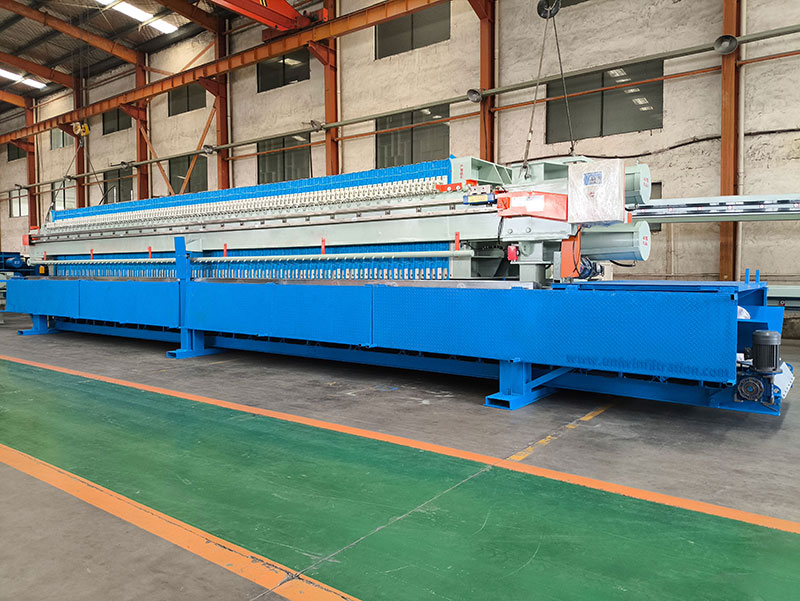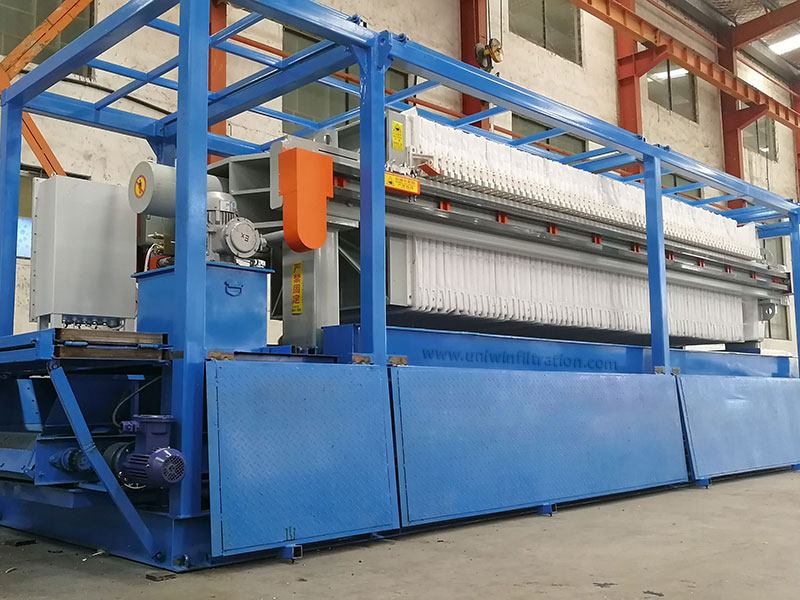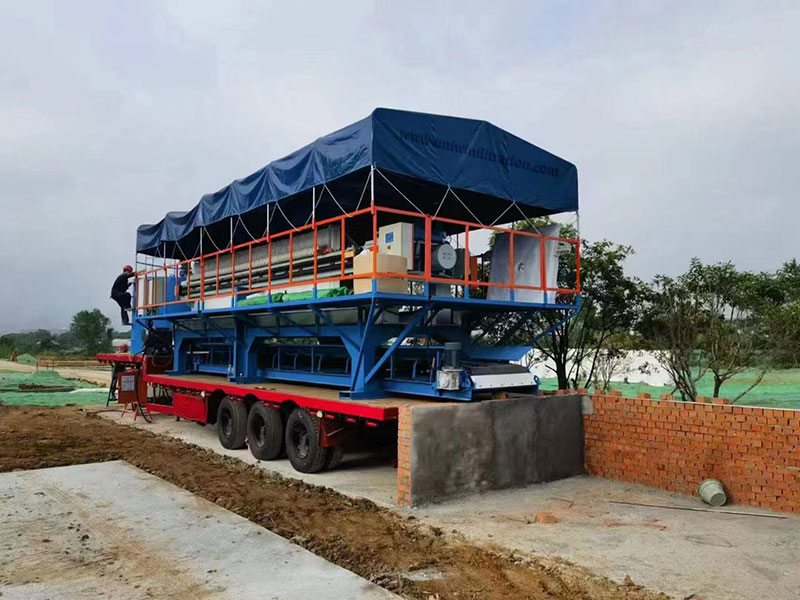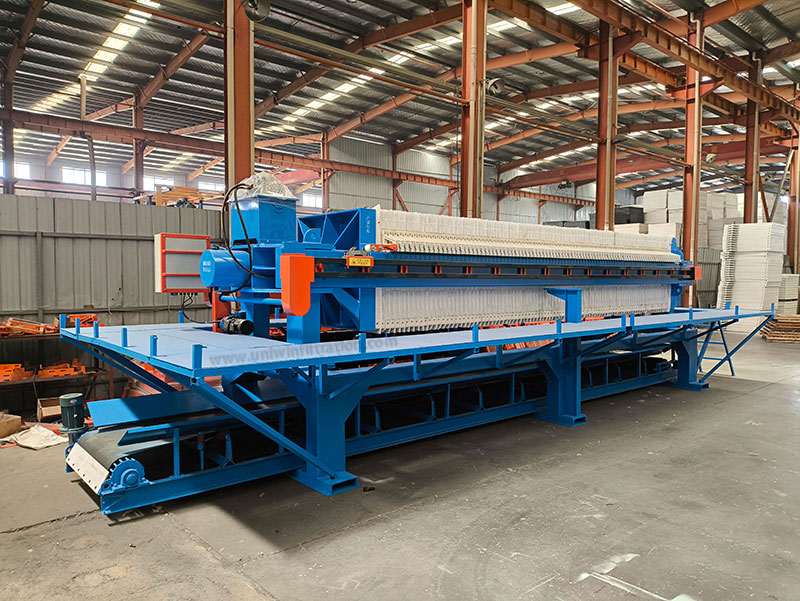Vehicle-Mounted Filter Press
A vehicle-mounted filter press(mobile filter press) is a mobile solid-liquid separation device that integrates the filter press system into a vehicle (usually a truck or trailer). It is suitable for field operations or occasions where the work site needs to be changed frequently. It integrates the core functions of a traditional filter press and has the advantages of flexibility, mobility, and rapid deployment. It is becoming more and more popular in the fields of environmental protection, mining, water treatment, emergency rescue, etc.

What is a Vehicle-Mounted Mobile Filter Press?
A vehicle-mounted mobile filter press is an integrated device that is based on a filter press and integrates functional modules such as a hydraulic system, a control system, a sludge pump, a cleaning device, and a power system, and is installed on a vehicle chassis or a container platform.
Main Components:
- Filter press (plate and frame filter press, chamber filter press, etc.)
- The hydraulic system controls the opening and closing of the filter plate.
- Electrical control system (including PLC or manual control box)
- Sludge pump/feed pump
- Liquid storage tank, dosing device (if flocculant addition is required)
- Vehicle chassis or mobile platform
- Auxiliary functions: filter cloth cleaning system, etc.
Working Principle of Trailer-mounted Mobile Filter Press
The working principle is essentially the same as that of a traditional filter press, which is to squeeze out the liquid in the solid-liquid mixture by applying pressure, leaving a solid filter cake. However, because it is integrated on a mobile platform, the workflow is more compact, highly automated, and can be quickly deployed and used in the field or at a temporary site.

The Core Advantages of Automatic Mobile Filter Presses
Flexible mobility: suitable for emergency treatment, field operations, and restricted areas.
Quick deployment: can be put into use immediately after arriving at the site without complicated installation.
Integrated design: The system is compact and has the entire process of feeding, filtration, unloading, and cleaning.
Strong adaptability: can be used in plateaus, cold or dusty environments, with good adaptability.
Cost savings: reduce civil engineering investment and multiple transportation costs.
Notes
- The sealing of the hydraulic system needs to be checked regularly.
- When working outdoors, measures should be taken to prevent wind, rain, and dust.
- Sufficient filter cloth-wearing parts should be prepared to avoid affecting continuous operation on site.
- Pay attention to equipment fixation and traffic safety during the moving process.
- If there is a diesel generator, regular maintenance is required.

Application Scenarios
- Temporary transformation or emergency treatment of municipal sewage stations
- Dehydration of mine tailings
- Oilfield drilling mud treatment
- Mobile treatment of industrial wastewater
- Emergency response to environmental accidents
- Mud filtration in construction

